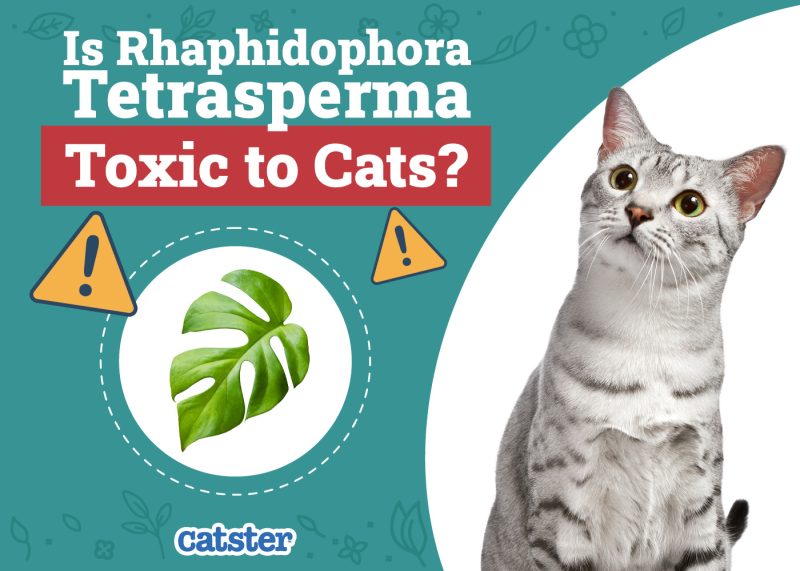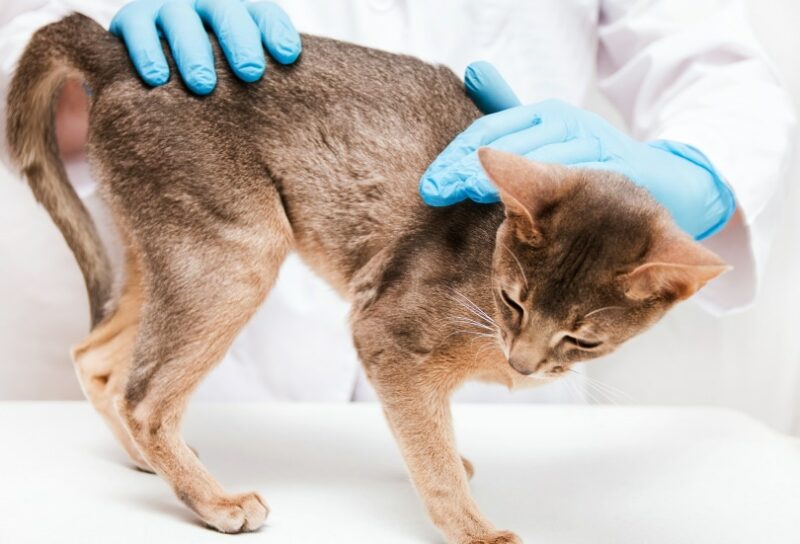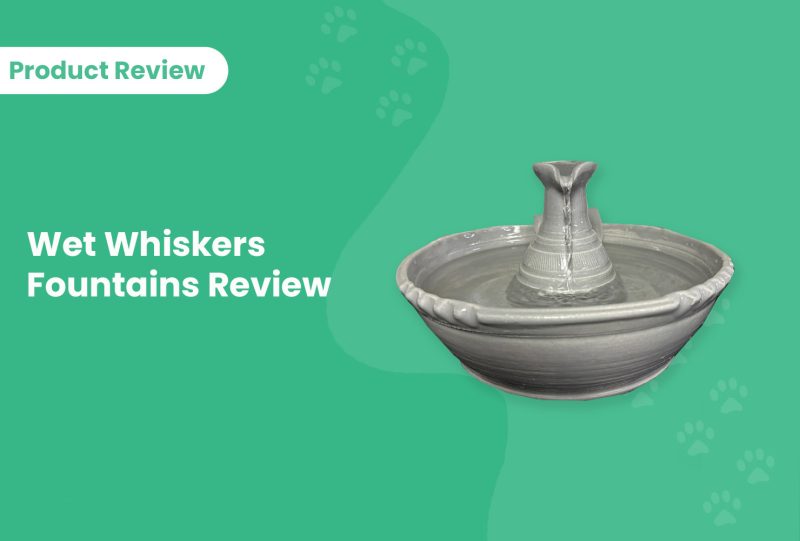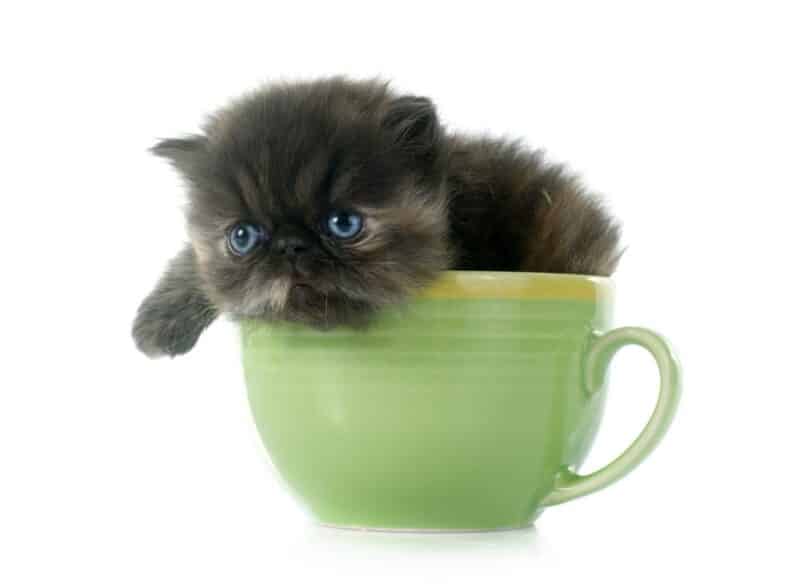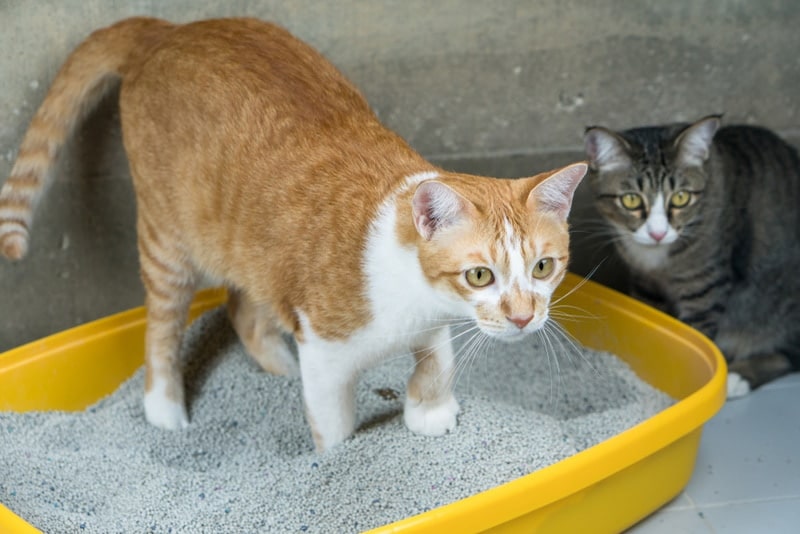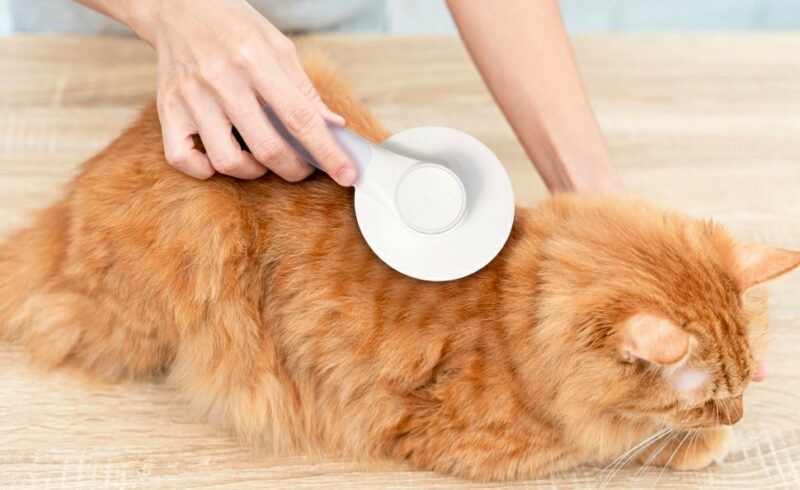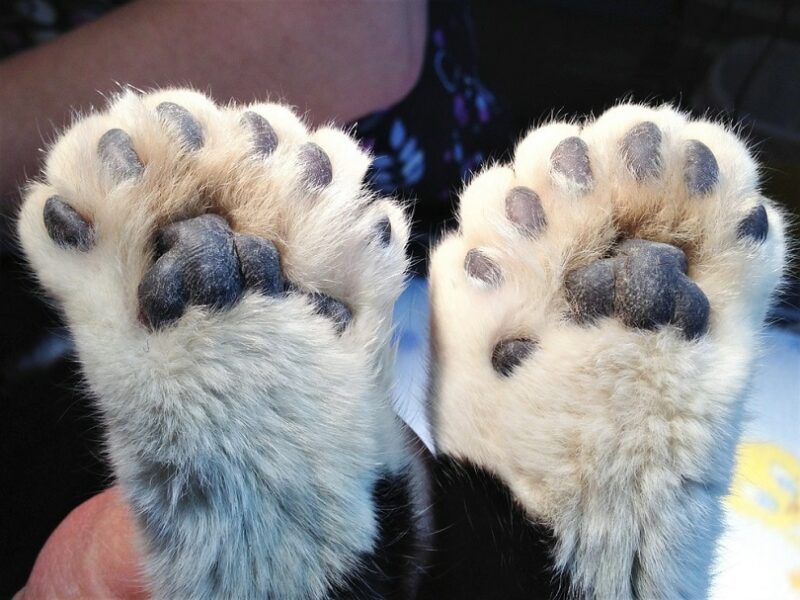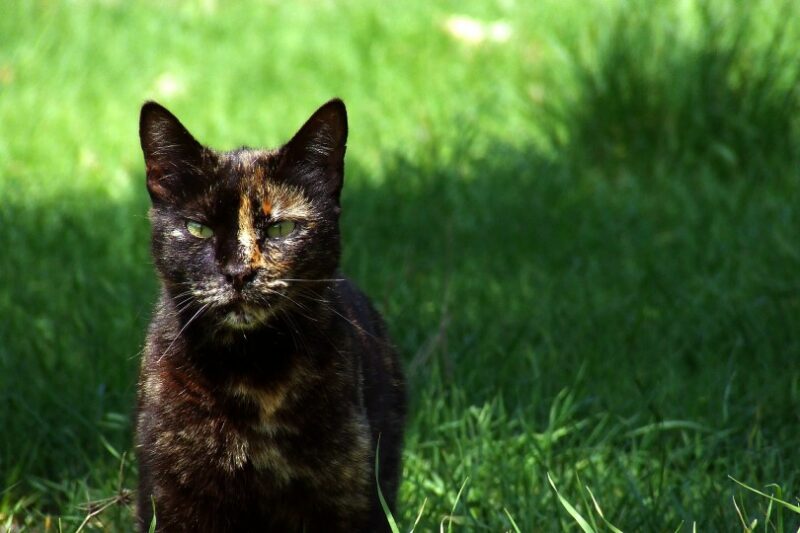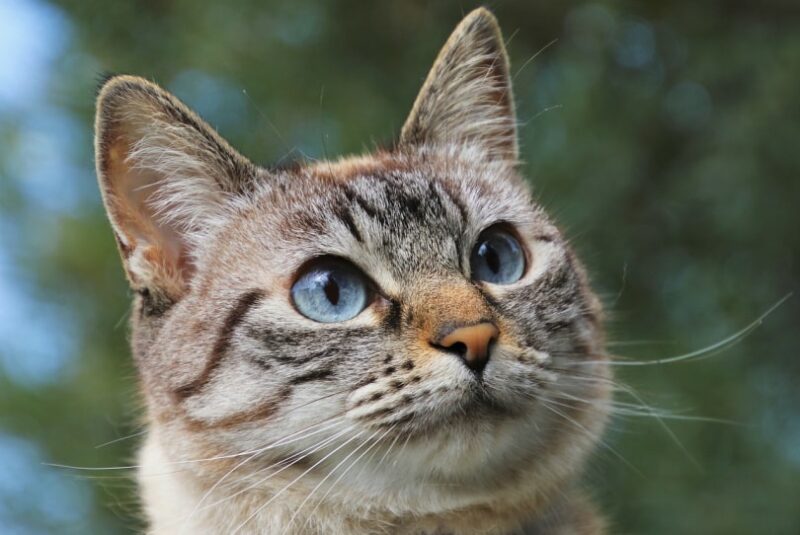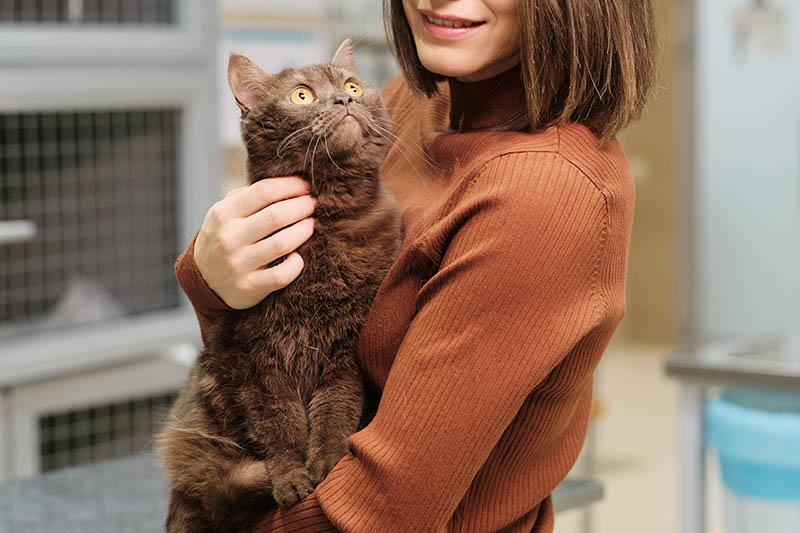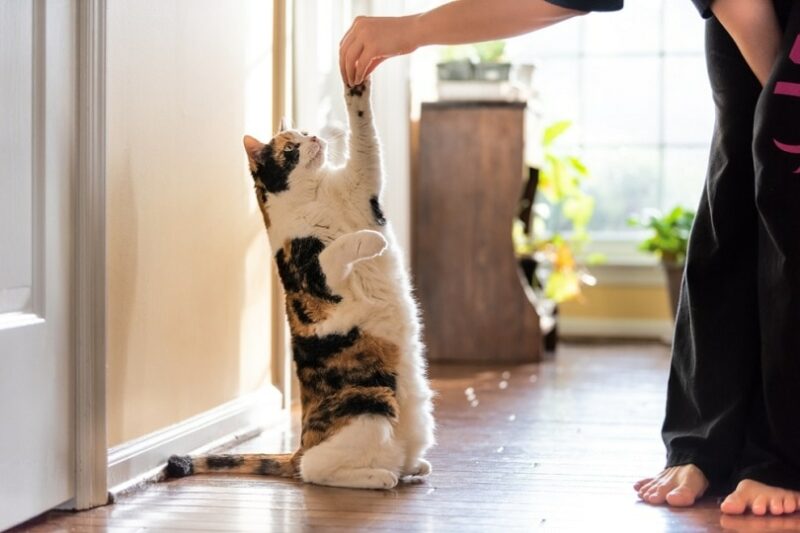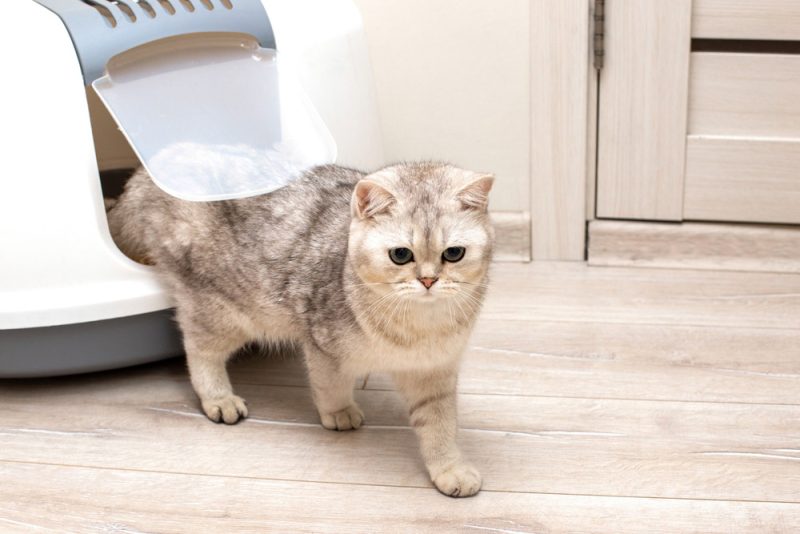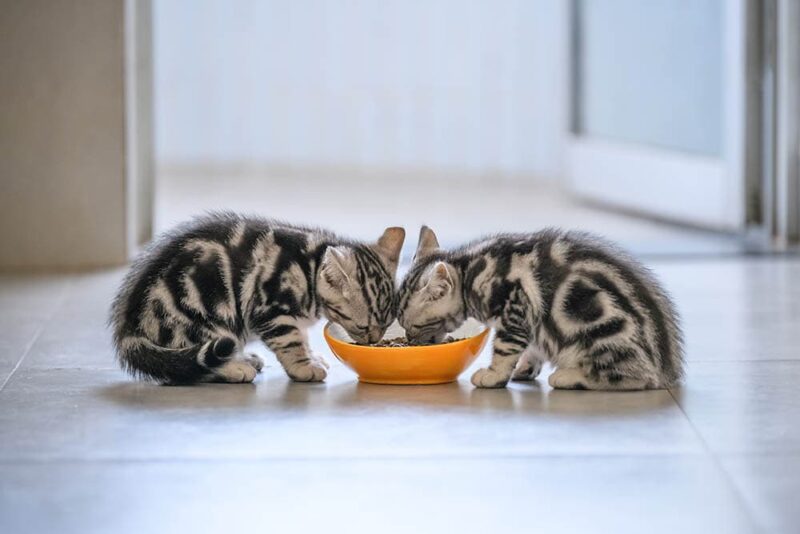The Rhaphidophora tetrasperma, also referred to as the mini monstera, is a beautifully lush plant with small, split leaves that can range in color from bright green to dark yellow. These plants have climbing vines that will grow several feet tall if unkempt. While these are popular houseplants, it is important to note that they can be toxic to cats (and dogs) upon contact with any part of the plant.
So, why is the Rhaphidophora tetrasperma toxic to cats? Is there anything that can be done to protect cats from this type of plant if they are growing in or around your home? What other plants are safer for cats to be around inside the house? Let’s explore the answers to these questions.

Why Rhaphidophora Tetrasperma Plants Are Toxic to Cats
Rhaphidophora tetrasperma plants are thought to contain a microscopic substance called calcium oxalate that works to keep animals and insects from eating the plant leaves and vines. Unfortunately, calcium oxalate raphides are toxic to cats and other animals. If ingested, the calcium oxalate crystals can cause signs such as nausea, drooling, pawing at the mouth, mouth swelling, and lethargy.
Rhaphidophora tetrasperma is part of the Araceae plant family, most of which contain sharp, insoluble calcium oxalate crystals called raphides. We could not, however, find any studies into this particular plant but advise caution. You should contact your vet if your cat does eat any amount of this plant, they can advise you on steps to take to care for your cat.
If you need to speak with a vet but can't get to one, head over to PangoVet. It's an online service where you can talk to a vet online and get the advice you need for your pet — all at an affordable price!

How to Keep Your Cat Safe If Growing Rhaphidophora Tetrasperma
The best way to keep your cat protected from the toxins in Rhaphidophora tetrasperma is to refrain from growing the plant indoors. If your cat spends any time outside, it is a good idea to eliminate these plants from your property altogether. If you still want to grow one in your home, here are a couple of things that you can do to protect your cat:
- Hang Your Plants: Put your plants in hanging pots, and hang them from the ceiling in your home in places where your cat cannot get up on furniture and reach them.
- Designate a Room for Your Plants: Choose a room in your home where your cat does not spend time to keep your plants in.
- Utilize repellent options: Try spraying your plants with a repellent to keep your cat from wanting to go near them. You can also place plastic forks in the pots with the spokes pointing outward to create a pokey “fence” around the plants.
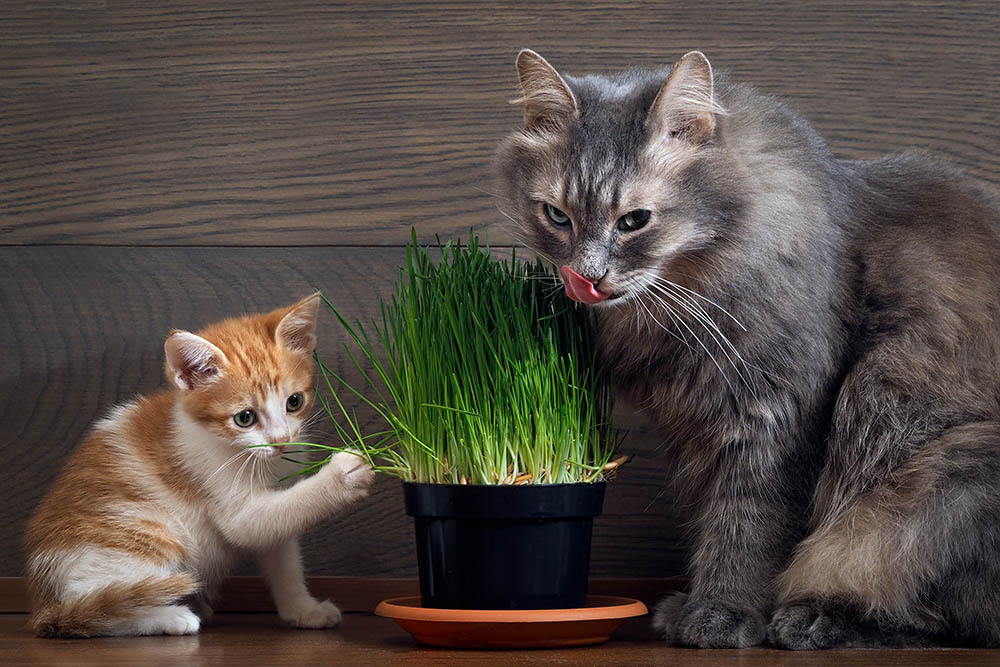
Alternative Plant Options That Are Safe for Cats
There are plenty of beautiful plant options available that are perfectly safe for cats to be around, so consider replacing your Rhaphidophora tetrasperma for your kitty’s sake. Interesting options include:
- Spider plants
- Ponytail palms
- Bird’s nest ferns
- Boston ferns
- Orchids
- Friendship plants
- Prayer plants
- Bromeliads
These are lush plants, many of which grow beautiful flowers that can help bring light, joy, depth, and color to your home’s décor.

In Conclusion
Rhaphidophora tetrasperma plants may be pretty, but they are not a good choice for homes with cats living. Fortunately, there is a large variety of other types of plants that can be safely grown around cats. If your cat does happen to come into contact with Rhaphidophora tetrasperma or eats part of the plant, it is important to contact your veterinarian as soon as possible.
